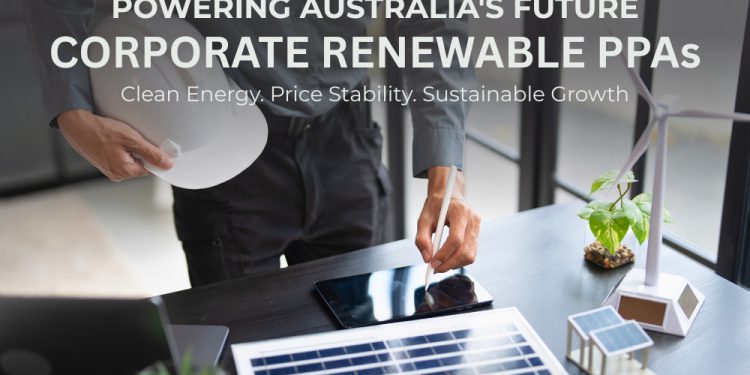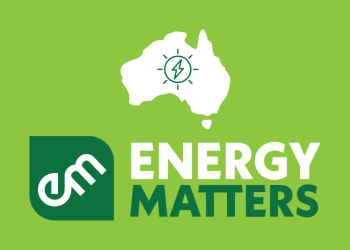Australia’s energy transition is gaining unprecedented pace, driven significantly by the private sector’s adoption of renewable energy. Faced with volatile electricity costs and increasing pressure to meet ambitious sustainability targets, corporations are turning to a sophisticated financial tool: the Power Purchase Agreement (PPA).
These long-term contracts for electricity procurement are not just about securing cheaper, cleaner power; they also directly support the development of new solar power and wind farms across the nation. Understanding how corporate renewable PPAs in Australia work is essential for any business serious about energy stability and environmental leadership.
What are power purchase agreements, and why do corporations use them
A power purchase agreement (PPA) is a long-term contract between a business and a renewable energy generator.
In Australia, corporate renewable PPAs refer specifically to arrangements in which corporates contract directly (or via intermediaries) with renewable energy projects to secure a supply of clean electricity.
Key reasons corporations are using these agreements:
- Long-term cost stability and protection from volatile energy prices
- Ability to meet sustainability goals, Environmental, Social, and Governance (ESG) commitments and decarbonisation targets.
- Support for renewable energy projects that need bankable offtake contracts to proceed.
How the market for corporate renewable PPAs in Australia is evolving
The market for corporate renewable PPAs in Australia has grown strongly in recent years. According to the Business Renewables Centre Australia, by the end of December 2023, there were 172 publicly confirmed corporate renewable PPAs in Australia, totalling more than 7.7 GW and supporting roughly 15 GW of project capacity.
A few notable trends:
- Record volumes: 2024 was flagged as a record year for PPAs, with demand expected to continue outpacing supply.
- Larger deal sizes: Recent deals tend to be with larger corporates and heavy industry.
- Variety of structures: Physical PPAs, virtual (financial) PPAs, and “sleeved” models are becoming more common.
Key benefits of corporate renewable PPAs
1. Cost predictability and risk mitigation
By entering a power purchase agreement, corporates lock in a fixed or predictable energy price over the contract term. This shields them from volatile spot-market electricity prices and rising input costs.
2. Sustainability and reputation enhancement
Using a corporate renewable PPA means buying green power directly from renewable generators — helping meet renewable energy goals and supporting the business’s “green” credentials.
3. Support for new-build renewable projects
Many renewable projects require long-term offtake, such as corporate PPAs, to secure financing. When a company signs a corporate renewable PPA in Australia, it can help unlock new solar or wind farms.
4. Tailored contracting flexibility
Corporations can choose from different PPA frameworks:
Physical (Direct/Sleeved) PPAs
These agreements involve the physical delivery of power, though the structure varies.
- On-site PPAs: The renewable energy system (typically solar) is installed on the company’s premises (‘behind-the-meter’). The business buys the generated power, and the provider owns and maintains the system, removing upfront capital costs.
- Sleeved (Off-site) PPAs: The generator sells power into the grid, and an electricity retailer “sleeves” (or facilitates) the transfer of that agreed-upon volume and associated LGCs to the corporate buyer. This is ideal for large users with multiple sites.
Virtual (Financial) PPAs (VPPAs)
VPPAs are purely financial contracts and have become a popular choice for larger, geographically diverse companies.
- Contract for Difference (CfD): The buyer and generator agree on a ‘strike price’. If the wholesale market price is higher, the generator pays the buyer; if it’s lower, the buyer pays the generator, hedging against market fluctuations.
- Decoupled supply: The buyer continues to purchase physical electricity from their standard retailer but uses the financial benefits and LGCs from the VPPA to claim renewable energy usage and meet targets.
Aggregated PPAs
Smaller and medium-sized enterprises (SMEs), universities, and local governments can gain access to large-scale projects by pooling their energy demand. This collective buying power makes the PPA process less complex and more cost-effective for organisations that cannot individually contract for large volumes of energy.
How corporations can approach a PPA: Steps and considerations
Here’s a step-by-step approach to how a business might proceed with a corporate renewable PPA:
- Assess load profile – understand your current and future electricity usage and exposure to price risk.
- Define sustainability / renewable goals – set targets (e.g., X % of power from renewables by 20XX).
- Identify potential PPA structures—consider physical, virtual, or sleeved, depending on capability and appetite.
- Evaluate counterparties and project partners – ensure creditworthiness, project viability, and contract terms.
- Negotiate terms – term length (often 10–15 years), minimum supply obligations, credit support, termination clauses.
- Execute and monitor – once in place, track performance, verify renewable certificates, report internally and externally.
Practical tips for businesses evaluating PPAs
- Start early: because project supply can be limited, early engagement can secure better terms.
- Align with business operations: make sure your energy demand profile and growth plans align with the PPA volume.
- Watch contract exit and risk terms: early termination, minimum supply obligations and credit support clauses are key.
- Ensure additionality: choose projects where your offtake truly supports new renewable capacity rather than simply reshuffling existing supply.
- Work with solar energy experts: an experienced adviser can help navigate structuring, negotiation and certification.
Sources: ERM – Renewable PPA market in 2024 and a new guide to a PPA’s social licence to operate | Energy Action – Corporate PPA: 5 Key Benefits for Your Business | Renew Economy – Record year for renewable PPAs features two mega-deals – and a new biggest spender | Allens – Corporate PPAs
The role of corporate PPAs in Australia’s transition to renewable energy
Corporate renewable PPAs are not just a tool for individual companies — they play a material role in Australia’s broader shift to clean energy. According to market data, since 2017, “corporate PPAs have directly contracted for almost one-fifth of the capacity of new renewable energy projects” and supported significantly more.
This means that when companies sign power purchase agreements, they help accelerate the deployment of large-scale solar and wind in Australia. That supports national targets for renewable energy, grid decarbonisation and reduced reliance on fossil generation.
For you as a business leader, this offers both strategic energy value and a visible sustainability story.
Going solar with confidence
Energy Matters is here to guide you every step of the way. We help Australian home and business owners receive personalised solar quotes through our large network of high-quality solar installers. We only work with reputable solar companies that have a proven track record of delivering high-quality solar systems.
















